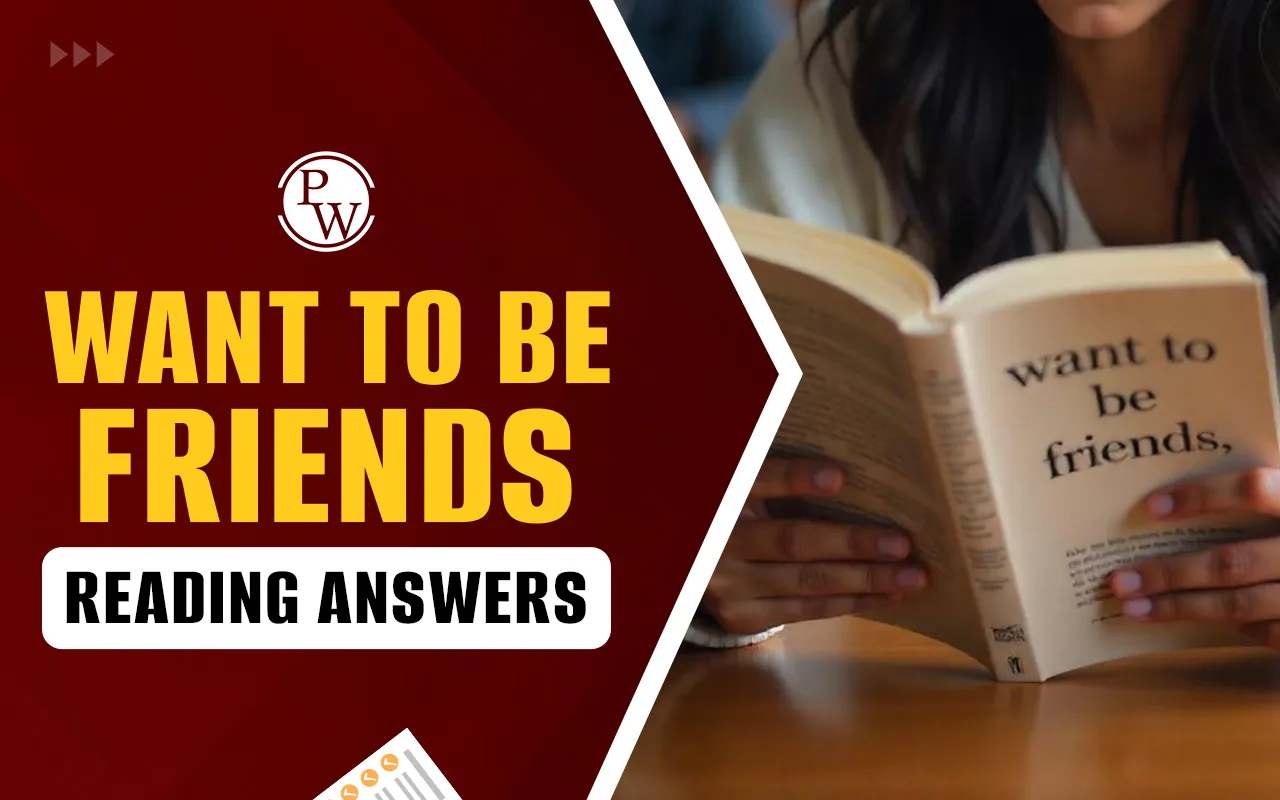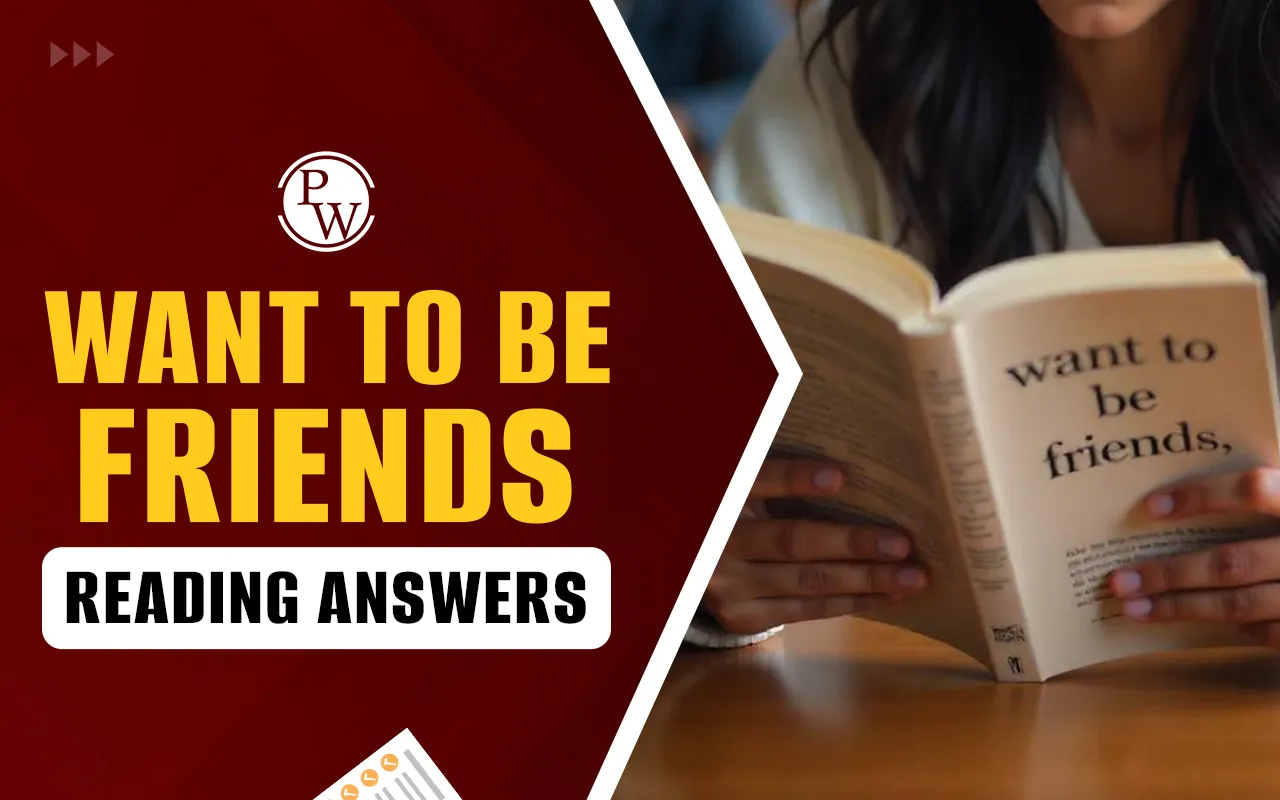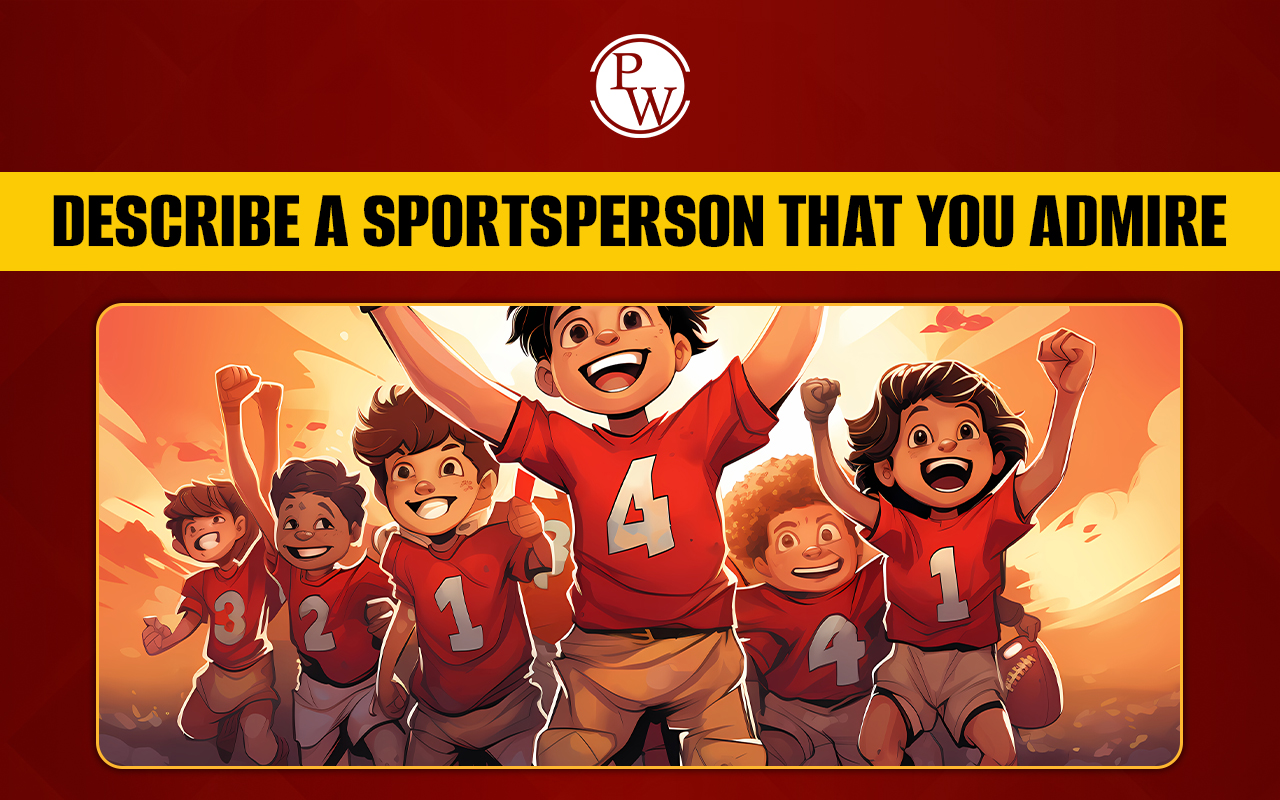

Want to be Friends Reading Answers: The IELTS reading module provides students with valuable opportunities to enhance their reading comprehension skills and boost their IELTS band scores. One of the key passages often encountered is the "Want to be Friends Reading Answers" topic, which focuses on the dynamics of online social networking and its influence on personal relationships. Practicing this type of passage can help students better understand question patterns, especially when dealing with complex ideas related to social interactions and digital communication. This IELTS Reading module passage contains various question types that test your ability to extract and understand detailed information. By thoroughly reading the passage and practicing the related questions, students can improve their ability to tackle similar questions in the actual IELTS 2025 exam.
Want to be Friends Reading Answers Passage
You should spend about 20 minutes on Questions 1-14, which are based on the Reading Passage below
Want to be Friends
Could the benefits of online social networking be too good to miss out on?
A. For many hundreds of thousands of people worldwide, online networking has become enmeshed in our daily lives. However, it is a decades-old insight from a study of traditional social networks that best illuminates one of the most important aspects of today’s online networking. In 1973 sociologist Mark Granovetter showed how the loose acquaintances, or weak ties, in our social network exert a disproportionate influence over our behaviour and choices. Granovetter’s research showed that a significant percentage of people get their jobs as a result of recommendations or advice provided by a weak tie. Today our number of weak-tie contacts has exploded via online social networking. ‘You couldn’t maintain all of those weak ties on your own, ‘ says Jennifer Golbeck of the University of Maryland, ‘Online sites, such as Facebook, give you a way of cataloguing them.’ The result? It’s now significantly easier for the school friend you haven’t seen in years to pass you a tip that alters your behaviour, from recommendation of a low-cholesterol breakfast cereal to a party invite where you meet your future wife or husband.
B. The explosion of weak ties could have profound consequences for our social structures too, according to Judith Donath of the Berkman Center for Internet and Society at Harvard University. ‘We’re already seeing changes,’ she says. For example, many people now turn to their online social networks ahead of sources such as newspapers and television for trusted and relevant news or information. What they hear could well be inaccurate, but the change is happening nonetheless. If these huge ‘supernets’ – some of them numbering up to 5, 000 people – continue to thrive and grow, they could fundamentally change the way we share information and transform our notions of relationships.
C. But are these vast networks really that relevant to us on a personal level? Robin Dunbar, an evolutionary anthropologist at the University of Oxford, believes that our primate brains place a cap on the number of genuine social relationships we can actually cope with: roughly 150. According to Dunbar, online social networking appears to be very good for ‘servicing’ relationships, but not for establishing them. He argues that our evolutionary roots mean we still depend heavily on physical and face-to-face contact to be able to create ties.
D. Nonetheless, there is evidence that online networking can transform our daily interactions. In an experiment at Cornell University, psychologist Jeff Hancock asked participants to try to encourage other participants to like them via instant messaging conversation. Beforehand, some members of the trial were allowed to view the Facebook profile of the person they were trying to win over. He found that those with Facebook access asked questions to which they already knew the answers or raised things they had in common, and as result were much more successful in their social relationships. Hancock concluded that people who use these sites to keep updated on the activities of their acquaintances are more likely to be liked in subsequent social interactions.
E. Online social networking may also have tangible effects on our well-being. Nicole Ellison of Michigan State University found that the frequency of networking site use correlates with greater self- esteem. Support and affirmation from the weak ties could be the explanation, says Ellison. ‘Asking your close friends for help or advice is nothing new, but we are seeing a lowering of barriers among acquaintances, ‘ she says. People are readily sharing personal feelings and experiences to a wider circle than they might once have done. Sandy Pentland at the Massachusetts Institute of Technology agrees. The ability to broadcast to our social group means we need never feel alone, he says. The things that befall us are often due to a lack of social support. There’s more of a safety net now.”
F. Henry Holzman, also at MIT, who studies the interface between online social networking and the real world, points out that increased visibility also means our various social spheres – family, work, friends – are merging, and so we will have to prepare for new societal norms. ‘We’ll have to learn how to live a more transparent life,’ he says. We may have to give up some ability to show very limited glimpses of ourselves to others.’
G. Another way that online networking appears to be changing our social structures is through dominance. In one repeated experiment, Michael Kearns of the University of Pennsylvania asked 30 volunteers to quickly reach consensus in an online game over a choice between two colours. Each person was offered a cash reward if they succeeded in persuading the group to pick one or other colour. All participants could see the colour chosen by some of the other people, but certain participants had an extra advantage: the ability to see more of the participants’ chosen colours than others. Every time Kearns found that those who could see the choices of more participants (in other words, were better connected) persuaded the group to pick their colour, even when they had to persuade the vast majority to give up their financial incentive. While Kearns warns that the setting was artificial, he says it’s possible that greater persuasive power could lie with well-connected individuals in the everyday online world too.
| IELTS Exam Important Links | |
|---|---|
| IELTS Reading Band Score | IELTS Listening Band Score |
| IELTS Speaking Band Score | IELTS Writing Band Score |
Want to be Friends Reading Answers Sample Questions
IELTS Reading Matching Headings (Q. 1-6)
-
The Power of Weak Ties in Social Networking
-
How Evolution Affects Our Ability to Build Relationships
-
The Role of Social Networks in Changing Social Structures
-
The Impact of Online Networking on Self-Esteem and Well-being
-
The Effect of Online Networking on Personal Interactions
-
The Influence of Social Networks on Decision-Making and Persuasion
IELTS Reading Matching Features (Q. 7-10)
-
Judith Donath - Changes in social structures due to online networks.
-
Robin Dunbar - The limitation of genuine social relationships based on evolutionary anthropology.
-
Nicole Ellison - The relationship between frequency of use of online networks and self-esteem.
-
Michael Kearns - The persuasive power of well-connected individuals in social networks.
IELTS Reading Multiple Choice Questions (Q. 11-12)
-
What did Mark Granovetter’s study show about weak ties in social networks?
-
A) They have no influence over people's decisions.
-
B) They influence people’s behavior and choices disproportionately.
-
C) They are more valuable than strong ties in social networks.
-
D) They are less important in modern social structures.
-
According to Robin Dunbar, what is the limit on the number of genuine social relationships?
-
A) 50
-
B) 150
-
C) 200
-
D) 300
IELTS Reading Multiple Choice Questions (Q. 13-14)
-
What conclusion did Jeff Hancock draw from his experiment at Cornell University?
-
A) Online networking has no effect on social relationships.
-
B) People with Facebook access are more likely to be liked in subsequent social interactions.
-
C) Instant messaging has a negative effect on building social ties.
-
D) People with fewer online connections perform better in social interactions.
-
What does Sandy Pentland suggest about online networking’s effect on individuals?
-
A) It leads to more feelings of isolation.
-
B) It provides more opportunities for loneliness.
-
C) It helps ensure people never feel alone due to more social support.
-
D) It reduces the amount of support available for individuals.
Want to be Friends Reading Answers with Explanations
-
The Power of Weak Ties in Social Networking
-
Answer: A
-
Answer Location: Paragraph A
-
Answer Reference: "Granovetter’s research showed that a significant percentage of people get their jobs as a result of recommendations or advice provided by a weak tie."
-
Answer Explanation: This paragraph discusses how weak ties have a disproportionate influence over our behavior and choices, highlighting the importance of weak ties in online social networking.
-
How Evolution Affects Our Ability to Build Relationships
-
Answer: C
-
Answer Location: Paragraph C
-
Answer Reference: "Robin Dunbar... believes that our primate brains place a cap on the number of genuine social relationships we can actually cope with: roughly 150."
-
Answer Explanation: This paragraph explains how human evolution limits the number of genuine relationships we can maintain and how online networking serves to maintain relationships rather than create new ones.
-
The Role of Social Networks in Changing Social Structures
-
Answer: B
-
Answer Location: Paragraph B
-
Answer Reference: "Many people now turn to their online social networks ahead of sources such as newspapers and television for trusted and relevant news or information."
-
Answer Explanation: This paragraph discusses how online social networks are transforming how we share information and could change the structure of social relationships.
-
The Impact of Online Networking on Self-Esteem and Well-being
-
Answer: E
-
Answer Location: Paragraph E
-
Answer Reference: "Nicole Ellison... found that the frequency of networking site use correlates with greater self-esteem."
-
Answer Explanation: This paragraph focuses on how online social networking can positively affect well-being and self-esteem, especially through support from weak ties.
-
The Effect of Online Networking on Personal Interactions
-
Answer: D
-
Answer Location: Paragraph D
-
Answer Reference: "Beforehand, some members of the trial were allowed to view the Facebook profile of the person they were trying to win over... were much more successful in their social relationships."
-
Answer Explanation: This paragraph highlights the influence of online profiles and how knowing more about acquaintances can improve personal interactions.
-
The Influence of Social Networks on Decision-Making and Persuasion
-
Answer: G
-
Answer Location: Paragraph G
-
Answer Reference: "Every time Kearns found that those who could see the choices of more participants... persuaded the group to pick their colour."
-
Answer Explanation: This paragraph discusses the power of well-connected individuals in influencing decision-making and group consensus, showing how social networks can alter behaviors.
-
Judith Donath
-
Answer: B
-
Answer Location: Paragraph B
-
Answer Reference: "Judith Donath... says. For example, many people now turn to their online social networks ahead of sources such as newspapers and television."
-
Answer Explanation: Donath is referenced as someone who discusses the changes online networks are making in how information is shared, leading to changes in social structures.
-
Robin Dunbar
-
Answer: C
-
Answer Location: Paragraph C
-
Answer Reference: "Robin Dunbar, an evolutionary anthropologist at the University of Oxford, believes that our primate brains place a cap on the number of genuine social relationships we can actually cope with: roughly 150."
-
Answer Explanation: Dunbar is the expert who provides insights into the limitations of human capacity for genuine social relationships.
-
Nicole Ellison
-
Answer: E
-
Answer Location: Paragraph E
-
Answer Reference: "Nicole Ellison... found that the frequency of networking site use correlates with greater self-esteem."
-
Answer Explanation: Ellison's study is referenced as evidence showing a link between frequent use of networking sites and increased self-esteem.
-
Michael Kearns
-
-
Answer: G
-
Answer Location: Paragraph G
-
Answer Reference: "In one repeated experiment, Michael Kearns... found that those who could see the choices of more participants persuaded the group to pick their colour."
-
Answer Explanation: Kearns is the researcher who conducted experiments showing how greater social connections can influence decision-making and persuasion.
-
-
What did Mark Granovetter’s study show about weak ties in social networks?
-
-
Answer: B) They influence people’s behavior and choices disproportionately.
-
Answer Location: Paragraph A
-
Answer Reference: "Granovetter’s research showed that a significant percentage of people get their jobs as a result of recommendations or advice provided by a weak tie."
-
Answer Explanation: Granovetter's study showed that weak ties are influential in people's behavior and choices, such as job opportunities.
-
-
According to Robin Dunbar, what is the limit on the number of genuine social relationships?
-
-
Answer: B) 150
-
Answer Location: Paragraph C
-
Answer Reference: "Robin Dunbar... believes that our primate brains place a cap on the number of genuine social relationships we can actually cope with: roughly 150."
-
Answer Explanation: Dunbar suggests that humans can only manage about 150 genuine social relationships due to evolutionary limitations.
-
-
What conclusion did Jeff Hancock draw from his experiment at Cornell University?
-
-
Answer: B) People with Facebook access are more likely to be liked in subsequent social interactions.
-
Answer Location: Paragraph D
-
Answer Reference: "Hancock concluded that people who use these sites to keep updated on the activities of their acquaintances are more likely to be liked in subsequent social interactions."
-
Answer Explanation: Hancock's study showed that those who use online social networks, like Facebook, are more successful in social interactions.
-
-
What does Sandy Pentland suggest about online networking’s effect on individuals?
-
-
Answer: C) It helps ensure people never feel alone due to more social support.
-
Answer Location: Paragraph E
-
Answer Reference: "The ability to broadcast to our social group means we need never feel alone, he says. The things that befall us are often due to a lack of social support."
-
Answer Explanation: Pentland suggests that online networking provides a safety net of social support, ensuring people don’t feel isolated.
-
Also Read:
- Should You Use All Capital Letters in the IELTS Listening and Reading Tests
- IELTS Reading Mistakes
- How to Improve IELTS Reading Score
- How to Manage Time in IELTS Reading
Guidance of PW IELTS
Physics Wallah offers multiple online IELTS courses for all students. Follow the IELTS pages to better prepare for the exam.
| What is IELTS Exam? | Documents Required for IELTS Registration |
| IELTS exam eligibility requirements | IELTS Exam Fees |
| IELTS test results | IELTS Exam Pattern |
Want to be Friends Reading Answers FAQs
What are weak ties in social networks?
How does online social networking affect our relationships?
How do online social networks impact self-esteem?
What role do social networks play in decision-making?












